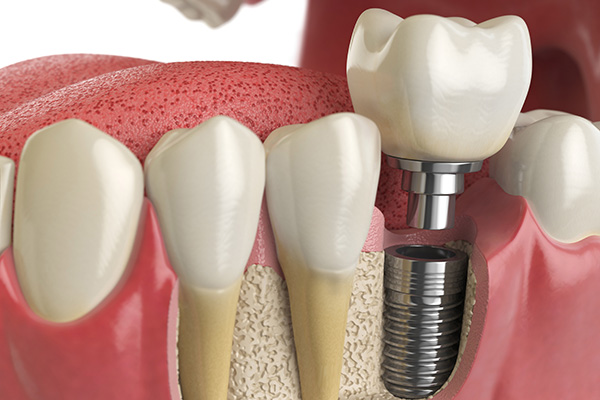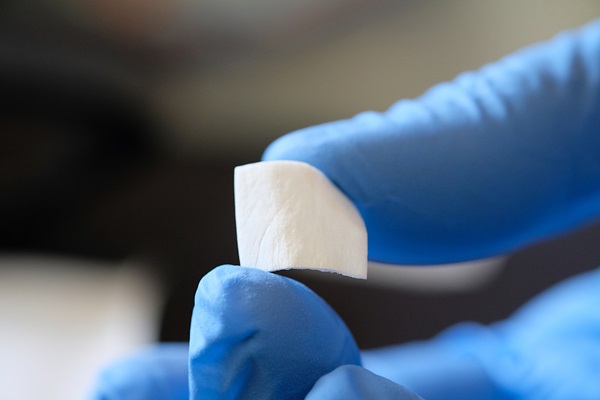 A periodontist helps patients through the dental implant process, from consultation visits to aftercare after successful restoration placement. Read on to learn more about this procedure. In many cases, a bone graft procedure is required in order to ensure the successful fusion of the dental implant with the jawbone.
A periodontist helps patients through the dental implant process, from consultation visits to aftercare after successful restoration placement. Read on to learn more about this procedure. In many cases, a bone graft procedure is required in order to ensure the successful fusion of the dental implant with the jawbone.
An overview of the bone graft procedure for implants from a periodontist
A bone graft procedure is sometimes necessary before the placement of dental implants. It is helpful for patients to understand what a bone graft procedure is and why it may be required to help calm any anxieties and feel more confident with the recommended treatment plan the periodontist has provided.
What is a bone graft procedure?
A bone graft procedure restores the jawbone density inside the jaw, the most notably necessary step in dental implant placement. The process involves taking bone from other areas of the mouth or body or an artificial substitute bone material and grafting it to the jaw site where bone loss has occurred.
When would a periodontist recommend a bone graft before implants?
Periodontists may require a bone graft procedure before the placement of dental implants to ensure the implant properly osseointegrates in the jaw. Bone grafts are particularly necessary when healthy bone is lost inside the jaw due to periodontal disease or atrophy resulting from losing one or more teeth. When this occurs, placing an implant without a bone graft procedure could significantly increase the risk of implant failure.
How is a bone graft procedure performed?
There are different ways we perform bone grafts, but the basic process is generally the same. The first step is to take bone from other areas of the mouth or body or use an artificial material. An incision is then made to access the part of the jaw that needs the bone graft. The new bone is attached to the area, followed by sealing the gums. This process is a simpler version of a more involved process, so discussing the procedure with a periodontist during a consultation.
What happens after a bone graft procedure?
It takes time for the mouth to heal. The time can range from one to six months, and the average time is around three months. We can schedule the implant placement procedure once the mouth has healed and the jawbone is ready for an implant. The next step involves fixing the implant into the jaw, which serves as the root and support of the replacement tooth. Once the implant osseointegrates and the mouth heals, then the restoration is placed.
Ready to get started?
Call us or send us a message today to learn more about the dental implant treatment process and to schedule a visit for a consultation. We take pride in helping our patients through the dental implant treatment process, and we are more than happy to help you put together a treatment plan during your consultation visit.
Request an appointment or call Brighton Periodontal & Implant Dental Group at 818-703-7733 for an appointment in our Woodland Hills office.
Recent Posts
Periodontics focuses on gum health. Keeping your gums healthy is the main goal of every treatment. Detecting any problem early leads to early treatment. You can also do your part in caring for your gums. Here are some tips from dental professionals who work in periodontics on how to have healthier gums.Bad bacteria in the…
When we go to the dentist or periodontist, one of the last things that we expect to hear is that we need gum recession treatment. However, gum recession happens to many people for many reasons. When it does happen, it is important to get it treated properly as soon as possible to avoid further damage.…
Among the different dental specialists, a periodontist is one of the most important for your oral health. Knowing what they do and when it is time to consult one can save you a ton of pain and many unnecessary dentist visits if you catch the problem in time. Periodontal treatments are fairly common, but not…


